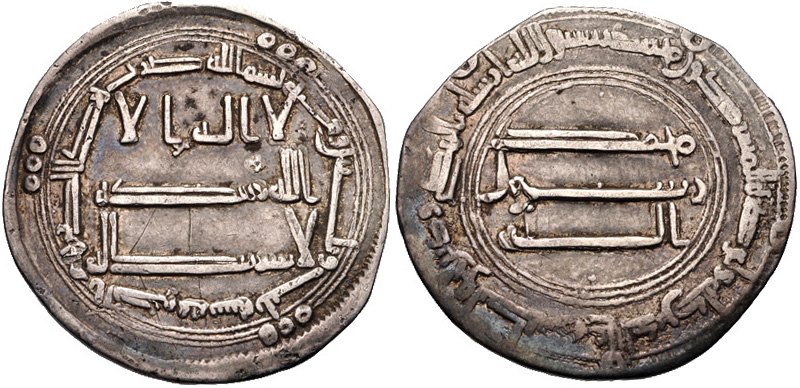|
Persecution Of Minority Muslim Groups
A number of minority groups within Islam have faced persecution by other Muslims for allegedly being incompatible with Sunni Islam. Ahmadis The Ahmadiyya regard themselves as Muslims, but are seen by many other Muslims as non-Muslims and "heretics" since they are accused of not believing in the finality of prophethood since the death of Muhammad. Armed groups, led by the umbrella organization Khatme Nabuwwat ("Finality of Prophethood"), have launched violent attacks against their mosques in Bangladesh. They committed massacres against them which resulted in 2,000 Ahmadiyya deaths in Pakistani Punjab. Eventually, martial law had to be established and Governor general Ghulam Mohamed dismissed the federal cabinet. This anti-Ahmadiyya movement led Pakistani prime minister Zulfiqar Ali Bhutto to declare that the Ahmadiyyas were "non-Muslims". [...More Info...] [...Related Items...] OR: [Wikipedia] [Google] [Baidu] |
Sunni Islam
Sunni Islam () is the largest branch of Islam, followed by 85–90% of the world's Muslims. Its name comes from the word '' Sunnah'', referring to the tradition of Muhammad. The differences between Sunni and Shia Muslims arose from a disagreement over the succession to Muhammad and subsequently acquired broader political significance, as well as theological and juridical dimensions. According to Sunni traditions, Muhammad left no successor and the participants of the Saqifah event appointed Abu Bakr as the next-in-line (the first caliph). This contrasts with the Shia view, which holds that Muhammad appointed his son-in-law and cousin Ali ibn Abi Talib as his successor. The adherents of Sunni Islam are referred to in Arabic as ("the people of the Sunnah and the community") or for short. In English, its doctrines and practices are sometimes called ''Sunnism'', while adherents are known as Sunni Muslims, Sunnis, Sunnites and Ahlus Sunnah. Sunni Islam is sometimes referred ... [...More Info...] [...Related Items...] OR: [Wikipedia] [Google] [Baidu] |
Night Soil
Night soil is a historically used euphemism for human excreta collected from cesspools, privies, pail closets, pit latrines, privy middens, septic tanks, etc. This material was removed from the immediate area, usually at night, by workers employed in this trade. Sometimes it could be transported out of towns and sold on as a fertilizer. Another definition is "untreated excreta transported without water (e.g. via containers or buckets)". The term "night soil" is largely an outdated term, used in historical contexts. The modern term is "fecal sludge"; fecal sludge management is an ongoing challenge, particularly in developing countries. Night soil was produced as a result of a sanitation system in areas without sewer systems or septic tanks. In this system of waste management, the human feces are collected without dilution with water. Collection and disposal Feces were excreted into a container such as a chamber pot, and sometimes collected in the container with urine and othe ... [...More Info...] [...Related Items...] OR: [Wikipedia] [Google] [Baidu] |
Averroes
Ibn Rushd ( ar, ; full name in ; 14 April 112611 December 1198), often Latinized as Averroes ( ), was an Andalusian polymath and jurist who wrote about many subjects, including philosophy, theology, medicine, astronomy, physics, psychology, mathematics, Islamic jurisprudence and law, and linguistics. The author of more than 100 books and treatises, his philosophical works include numerous commentaries on Aristotle, for which he was known in the Western world as ''The Commentator'' and ''Father of Rationalism''. Ibn Rushd also served as a chief judge and a court physician for the Almohad Caliphate. Averroes was a strong proponent of Aristotelianism; he attempted to restore what he considered the original teachings of Aristotle and opposed the Neoplatonist tendencies of earlier Muslim thinkers, such as Al-Farabi and Avicenna. He also defended the pursuit of philosophy against criticism by Ashari theologians such as Al-Ghazali. Averroes argued that philosophy was permissi ... [...More Info...] [...Related Items...] OR: [Wikipedia] [Google] [Baidu] |
Islamic Philosophy
Islamic philosophy is philosophy that emerges from the Islamic tradition. Two terms traditionally used in the Islamic world are sometimes translated as philosophy—falsafa (literally: "philosophy"), which refers to philosophy as well as logic, mathematics, and physics; and Kalam (literally "speech"), which refers to a rationalist form of Scholastic Islamic theology which includes the schools of Maturidiyah, Ashaira and Mu'tazila. Early Islamic philosophy began with Al-Kindi in the 2nd century of the Islamic calendar (early 9th century CE) and ended with Averroes (Ibn Rushd) in the 6th century AH (late 12th century CE), broadly coinciding with the period known as the Golden Age of Islam. The death of Averroes effectively marked the end of a particular discipline of Islamic philosophy usually called the Peripatetic Islamic school, and philosophical activity declined significantly in Western Islamic countries such as Islamic Iberia and North Africa. Islamic philosophy persi ... [...More Info...] [...Related Items...] OR: [Wikipedia] [Google] [Baidu] |
Shi'a
Shīʿa Islam or Shīʿīsm is the second-largest Islamic schools and branches, branch of Islam. It holds that the Prophets and messengers in Islam, Islamic prophet Muhammad in Islam, Muhammad designated Ali, ʿAlī ibn Abī Ṭālib as his Succession to Muhammad, successor (''khalīfa'') and the Imamah (Shia doctrine), Imam (spiritual and political leader) after him, most notably at the event of Ghadir Khumm, but was prevented from succeeding Muhammad as the leader of the Muslims as a result of the choice made by some of Companions of the Prophet, Muhammad's other companions (''ṣaḥāba'') at Saqifah. This view primarily contrasts with that of Sunni Islam, Sunnī Islam, whose adherents believe that Muhammad did not appoint a successor before Death of Muhammad, his death and consider Abu Bakr, Abū Bakr, who was appointed caliph by a group of senior Muslims at Saqifah, to be the first Rashidun, rightful (''rāshidūn'') caliph after Muhammad. Adherents of Shīʿa Islam are c ... [...More Info...] [...Related Items...] OR: [Wikipedia] [Google] [Baidu] |
Sunni
Sunni Islam () is the largest branch of Islam, followed by 85–90% of the world's Muslims. Its name comes from the word '' Sunnah'', referring to the tradition of Muhammad. The differences between Sunni and Shia Muslims arose from a disagreement over the succession to Muhammad and subsequently acquired broader political significance, as well as theological and juridical dimensions. According to Sunni traditions, Muhammad left no successor and the participants of the Saqifah event appointed Abu Bakr as the next-in-line (the first caliph). This contrasts with the Shia view, which holds that Muhammad appointed his son-in-law and cousin Ali ibn Abi Talib as his successor. The adherents of Sunni Islam are referred to in Arabic as ("the people of the Sunnah and the community") or for short. In English, its doctrines and practices are sometimes called ''Sunnism'', while adherents are known as Sunni Muslims, Sunnis, Sunnites and Ahlus Sunnah. Sunni Islam is sometimes referre ... [...More Info...] [...Related Items...] OR: [Wikipedia] [Google] [Baidu] |
Al-Ghazali
Al-Ghazali ( – 19 December 1111; ), full name (), and known in Persian-speaking countries as Imam Muhammad-i Ghazali (Persian: امام محمد غزالی) or in Medieval Europe by the Latinized as Algazelus or Algazel, was a Persian polymath. He is known as one of the most prominent and influential philosophers, theologians, jurists, logicians and mystics of the Islamic Golden Age.Ludwig W. Adamec (2009), ''Historical Dictionary of Islam'', p.109. Scarecrow Press. . He is considered to be the 5th century's ''mujaddid'',William Montgomery Watt, ''Al-Ghazali: The Muslim Intellectual'', p. 180. Edinburgh: Edinburgh University Press, 1963. a renewer of the faith, who, according to the prophetic hadith, appears once every 100 years to restore the faith of the Islamic community. His works were so highly acclaimed by his contemporaries that al-Ghazali was awarded the honorific title "Proof of Islam" ('' Ḥujjat al-Islām'').Hunt Janin, ''The Pursuit of Learning in the Islamic Wor ... [...More Info...] [...Related Items...] OR: [Wikipedia] [Google] [Baidu] |
Ash'ari
Ashʿarī theology or Ashʿarism (; ar, الأشعرية: ) is one of the main Sunnī schools of Islamic theology, founded by the Muslim scholar, Shāfiʿī jurist, reformer, and scholastic theologian Abū al-Ḥasan al-Ashʿarī in the 9th–10th century. It established an orthodox guideline based on scriptural authority, rationality, and theological rationalism. Al-Ashʿarī established a middle way between the doctrines of the Aṯharī and Muʿtazila schools of Islamic theology, based both on reliance on the sacred scriptures of Islam and theological rationalism concerning the agency and attributes of God. Ashʿarism eventually became the predominant school of theological thought within Sunnī Islam, and is regarded as the single most important school of Islamic theology in the history of Islam. The disciples of the Ashʿarī school are known as Ashʿarites, and the school is also referred to as the Ashʿarite school, which became one of the dominant theological ... [...More Info...] [...Related Items...] OR: [Wikipedia] [Google] [Baidu] |
Al-Maʾmūn
Abu al-Abbas Abdallah ibn Harun al-Rashid ( ar, أبو العباس عبد الله بن هارون الرشيد, Abū al-ʿAbbās ʿAbd Allāh ibn Hārūn ar-Rashīd; 14 September 786 – 9 August 833), better known by his regnal name Al-Ma'mun ( ar, المأمون, al-Maʾmūn), was the seventh Abbasid caliph, who reigned from 813 until his death in 833. He succeeded his half-brother al-Amin after a civil war, during which the cohesion of the Abbasid Caliphate was weakened by rebellions and the rise of local strongmen; much of his domestic reign was consumed in pacification campaigns. Well educated and with a considerable interest in scholarship, al-Ma'mun promoted the Translation Movement, the flowering of learning and the sciences in Baghdad, and the publishing of al-Khwarizmi's book now known as "Algebra". He is also known for supporting the doctrine of Mu'tazilism and for imprisoning Imam Ahmad ibn Hanbal, the rise of religious persecution (''mihna''), and for the resump ... [...More Info...] [...Related Items...] OR: [Wikipedia] [Google] [Baidu] |
Ahmad Ibn Hanbal
Ahmad ibn Hanbal al-Dhuhli ( ar, أَحْمَد بْن حَنْبَل الذهلي, translit=Aḥmad ibn Ḥanbal al-Dhuhlī; November 780 – 2 August 855 CE/164–241 AH), was a Muslim jurist, theologian, ascetic, hadith traditionist, and founder of the Hanbali school of Sunni jurisprudence — one of the four major orthodox legal schools of Sunni Islam. A highly influential and active scholar during his lifetime,H. Laoust, "Ahmad b. Hanbal," in ''Encyclopedia of Islam'', Vol. I, pp. 272-7 Ibn Hanbal went on to become "one of the most venerated" intellectual figures in Islamic history, who has had a "profound influence affecting almost every area of" the traditionalist perspective within Sunni Islam.Holtzman, Livnat, “Aḥmad b. Ḥanbal”, in: Encyclopaedia of Islam, THREE, Edited by: Kate Fleet, Gudrun Krämer, Denis Matringe, John Nawas, Everett Rowson. One of the foremost classical proponents of relying on scriptural sources as the basis for Sunni Islamic law and ... [...More Info...] [...Related Items...] OR: [Wikipedia] [Google] [Baidu] |
Mihna
The Mihna ( ar, محنة خلق القرآن, ''Miḥnat k͟halaq al-Qurʾān'' "ordeal egardingthe createdness of the Qur'an") refers to the period of religious persecution instituted by the 'Abbasid Caliph al-Ma'mun in 833 CE in which religious scholars were punished, imprisoned, or even killed unless they conformed to Muʿtazila doctrine. The policy lasted for eighteen years (833–851 CE) as it continued through the reigns of al-Ma'mun's immediate successors, al-Mu'tasim and al-Wathiq, and four years of al-Mutawakkil who reversed it in 851. The abolition of Mihna is significant both as the end of the Abbasid Caliph's pretension to decide matters of religious orthodoxy, and as one of the few instances of specific religious persecution in Medieval Islam. Under al-Ma'mun In 827 CE, the caliph al-Ma’mun issued the proclamation of the doctrine of the createdness of the Qur'an. The proclamation was followed by the institution of the Mihna six years later, approximately fo ... [...More Info...] [...Related Items...] OR: [Wikipedia] [Google] [Baidu] |
Mu'tazili
Muʿtazila ( ar, المعتزلة ', English: "Those Who Withdraw, or Stand Apart", and who called themselves ''Ahl al-ʿAdl wa al-Tawḥīd'', English: "Party of ivineJustice and Oneness f God); was an Islamic group that appeared in early Islamic history and were known for their neutrality in the dispute between Alī and his opponents after the death of the third caliph, Uthman. By the 10th century CE the term had also come to refer to an Islamic school of speculative theology (kalām) that flourished in Basra and Baghdad (8th–10th century).Mutazilah ", ''''. The later Mu'tazila school developed an |









_-_BAE09705.jpg)